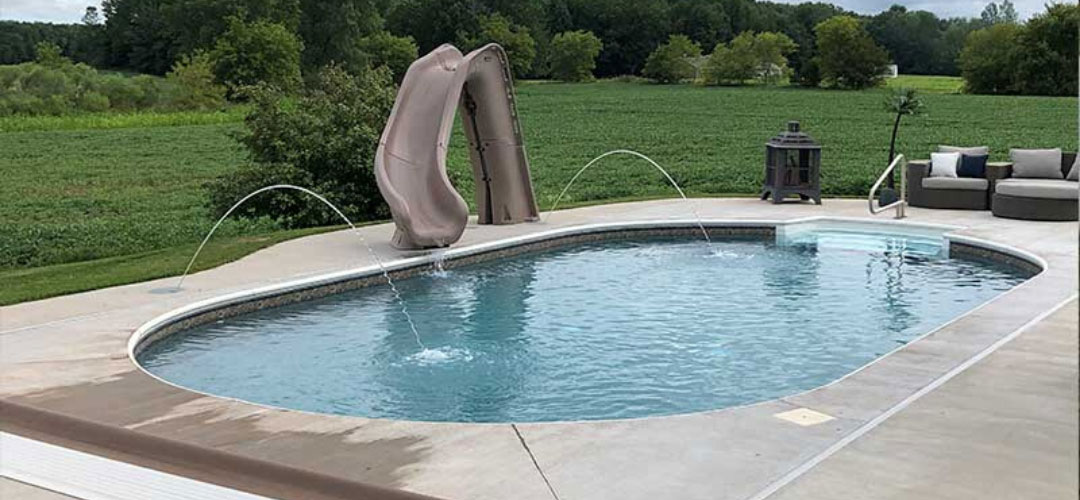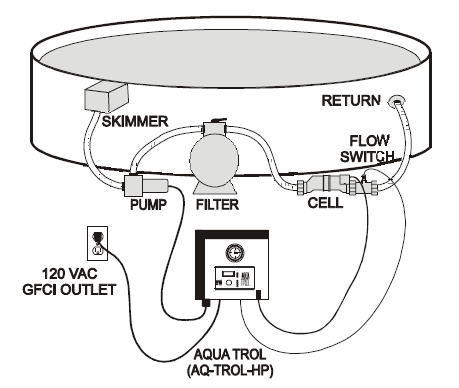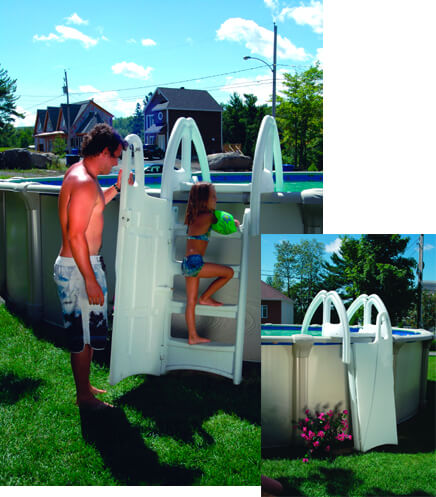If you’re in the process of setting up your own above ground pool, you may be wondering whether or not you need to worry about grounding. While the idea of grounding a swimming pool may sound complicated and intimidating, it’s actually quite simple and important for safety reasons. In this article, we will explore the necessity of grounding for above ground pools, shedding light on the potential risks and benefits involved in this often overlooked aspect of pool installation. So, grab a poolside seat and let’s dive into the world of grounding!
This image is property of images.pexels.com.
Definition of Grounding
In the context of electrical systems and pools, grounding refers to the process of connecting various conductive components of a pool installation to the ground. The purpose of grounding is to ensure the safety of individuals using the pool by preventing electrical shocks, reducing the risk of equipment damage, and mitigating potential hazards that may arise from electrical faults. Grounding provides a path for electrical currents to safely disperse into the ground, rather than passing through people or objects.
Importance of Grounding in Electrical Systems
Grounding plays a crucial role in electrical systems, including those related to above ground pools. It offers several important benefits, such as preventing electric shock hazards, safeguarding pool equipment, and complying with electrical codes and regulations. By providing a safe path for electrical currents to flow, grounding greatly reduces the risk of electrical shocks that can result from faulty wiring or other electrical faults. Furthermore, effective grounding helps protect sensitive pool equipment from damage caused by power surges or other electrical anomalies. Lastly, adherence to grounding requirements is essential for compliance with building codes and regulations, ensuring the safety of pool users and those who maintain the pool.
Building Codes and Requirements for Above Ground Pools
Electrical Codes
When it comes to above ground pools, electrical codes dictate specific requirements for grounding and electrical installations. These codes vary by region, so it is vital to consult with local authorities or a licensed electrician to ensure compliance with applicable regulations. Some common electrical code requirements for above ground pools include the use of ground fault circuit interrupters (GFCIs), proper bonding of various pool components, and adherence to the National Electrical Code (NEC). Electrical codes are established to promote safety, protect against electrical hazards, and minimize the risk of accidents or injuries.
Pool Construction Codes
In addition to electrical codes, there are specific construction codes that apply to above ground pools. These codes address various aspects of pool construction, including structural integrity, safety features, and installation requirements. The specific codes and regulations may differ depending on the jurisdiction, so it is essential to research and follow the rules in your area. Compliance with pool construction codes helps ensure the pool’s durability, stability, and overall safety.
Understanding Electrical Grounding for Pools
Purpose of Grounding
The primary purpose of grounding in pool installations is to keep individuals safe by preventing electrical shocks. Electrical systems in and around pools pose unique risks due to the presence of water and the potential for faulty equipment or wiring. Grounding provides a path for electrical fault currents to travel safely to the ground, minimizing the likelihood of shocks and electrocution. Proper grounding is vital to protect pool users and ensure the longevity of electrical equipment within the pool environment.
Types of Grounding
There are two main types of grounding commonly used in above ground pools: equipment grounding and bonding. Equipment grounding involves connecting metal parts of electrical devices and pool equipment to a grounding conductor, ensuring any faults in the electrical system are safely directed to the ground. Bonding, on the other hand, refers to connecting all metal components of the pool structure together to equalize electrical potentials, reducing the risk of electrical shock in the pool area. Both equipment grounding and bonding are essential for maintaining a safe pool environment.
Grounding Systems
Grounding systems for above ground pools typically involve the use of grounding electrodes, such as ground rods or conductive plates buried in the ground. These electrodes provide a low-resistance path for electrical currents to flow safely into the earth. Effective grounding systems also include grounding conductors, which connect the various metal components of the pool installation, such as the pump, filter, ladder, and lighting, to the grounding electrodes. Grounding systems must be properly installed and meet the requirements of electrical codes and regulations to ensure optimal safety and functionality.
This image is property of images.pexels.com.
Factors to Consider When Deciding Grounding for Above Ground Pools
Pool Installation
The type of above ground pool and how it is installed can influence the grounding requirements. Factors such as the pool’s material, size, and proximity to other structures may influence the need for specific grounding methods. It is essential to consult the manufacturer’s guidelines and local regulations to determine the appropriate grounding techniques for your specific pool installation.
Power Supply
The power supply to the pool equipment also plays a role in determining the grounding requirements. Different power supply configurations, such as dedicated circuits or shared connections, may have varying grounding needs. The voltage of the power supply and the type of grounding system installed in the main electrical panel should be considered when determining the appropriate grounding method for an above ground pool.
Distance from Power Source
The distance between the pool and the power source can impact the effectiveness of electrical grounding. Longer distances may introduce additional resistance, potentially compromising the effectiveness of grounding and increasing the risk of electrical faults. It is important to ensure that the grounding system is properly designed to account for the distance from the power source and minimize the potential for electrical issues.
Local Regulations
Local regulations and electrical codes vary from one jurisdiction to another. It is crucial to consult with the local building authorities or a licensed electrician to understand the specific grounding requirements and regulations in your area. Failure to comply with local regulations may result in penalties and can compromise the safety of the pool installation.
Grounding Methods for Above Ground Pools
There are several methods available for grounding above ground pools. These methods typically involve the use of grounding electrodes, grounding conductors, and bonding of various metal components of the pool structure. The specific grounding methods may vary based on the pool’s construction, electrical requirements, and local regulations. It is advisable to consult with a qualified electrician to determine the most appropriate grounding method for your above ground pool.
This image is property of images.pexels.com.
Copper Bonding
Copper bonding is a widely used method of grounding above ground pools. It involves connecting all metal components of the pool structure using copper bonding wire or straps. The purpose of copper bonding is to equalize the electrical potentials of all metal components in the pool, reducing the risk of electrical shock. Copper bonding provides an additional layer of safety by ensuring that any electrical faults are quickly and safely directed to the ground.
Ground Fault Circuit Interrupters (GFCIs)
Importance of GFCIs
Ground fault circuit interrupters (GFCIs) are essential safety devices that help protect against electrical shocks in and around pools. GFCIs monitor the electrical current flowing through a circuit and quickly shut off the power if they detect a ground fault or an imbalance in current. This rapid response helps prevent electrical shocks and can potentially save lives. GFCIs should be installed in all electrical circuits associated with above ground pools, including pumps, underwater lighting, and external power outlets.
Installation and Maintenance
Proper installation and regular maintenance of GFCIs are critical to their effectiveness. GFCIs should be installed by a licensed electrician who understands the specific requirements for pool electrical systems. Regular testing of GFCIs should also be performed to ensure they are functioning correctly. The testing process involves pressing the “TEST” button on the GFCI device, which should cause the power to shut off immediately. If the GFCI does not trip or fails to reset after being tripped, it should be replaced promptly. Regular maintenance and testing help ensure the continued safety and reliability of GFCIs.
Proper Grounding Techniques for Above Ground Pools
Grounding Electrode System
A grounding electrode system consists of grounding electrodes, such as ground rods or conductive plates, that are buried in the ground. These electrodes provide a low-resistance path for electrical fault currents to safely disperse into the earth. The number and size of grounding electrodes required depend on factors such as the pool’s size, the type of soil, and local regulations. Proper installation and positioning of grounding electrodes are essential to ensure effective electrical grounding for above ground pools.
Bonding Grid
The bonding grid is a network of copper bonding conductors that connect all metal components of the pool structure. This includes the pool walls, ladder, handrails, heater, pump, and any other metallic parts. The purpose of the bonding grid is to equalize the electrical potentials of these metal components, reducing the risk of electrical shocks. The bonding grid should be designed and installed following the requirements of local codes and regulations to ensure optimal safety.
Equipotential Bonding
Equipotential bonding is an additional safety measure that can be implemented in above ground pool installations. It involves creating equipotential planes by connecting conductive surfaces, such as the pool deck, fences, and nearby structures, using bonding conductors. These bonding conductors ensure that all surfaces within the pool area have the same electrical potential, minimizing the risk of electric shock. Equipotential bonding should be installed according to local regulations and guidelines to enhance the overall safety of the pool environment.
Conclusion
Grounding is an essential aspect of ensuring the safety and functionality of above ground pools. By providing a safe path for electrical currents to disperse into the ground, grounding prevents electrical shocks, safeguards pool equipment, and complies with building codes and regulations. Understanding the purpose of grounding, the different grounding methods, and the factors to consider when deciding on the grounding technique can help pool owners make informed decisions. It is crucial to consult with professionals, such as licensed electricians and local building authorities, to ensure the proper implementation of grounding in above ground pool installations. By prioritizing proper grounding techniques, pool owners can enjoy their pools with peace of mind, knowing that safety is at the forefront of their pool care.









